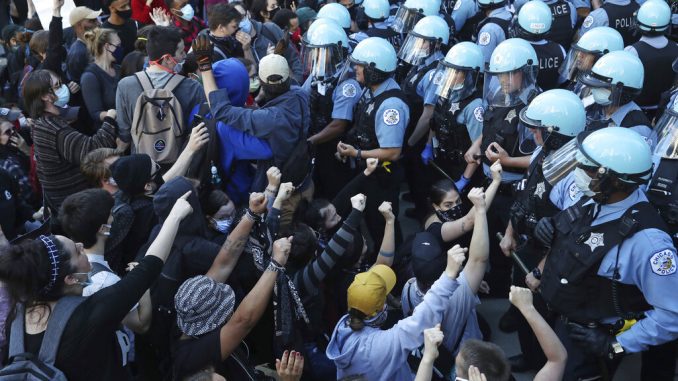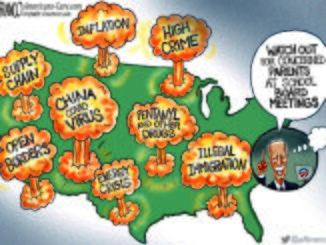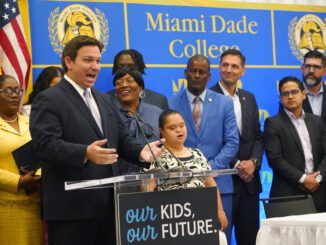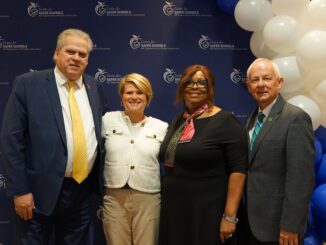
 A friend recently asked me for advice about what he should say to his young children about the tough times many people are experiencing during this coronavirus pandemic. Since then, other friends have asked me what they should tell their children about the killing of George Floyd and the resulting demonstrations and riots.
A friend recently asked me for advice about what he should say to his young children about the tough times many people are experiencing during this coronavirus pandemic. Since then, other friends have asked me what they should tell their children about the killing of George Floyd and the resulting demonstrations and riots.
I reminded them that my doctoral studies were in the field of rhetoric, not child psychology, but that I could share some thoughts with them. Those thoughts were a reflection of my broader attitude about life.
Generally speaking, I think we should tell kids what they need to know when they need to know it. K-12 school curricula are based on this idea. Maybe our parental approach should follow that idea as well.
The most important thing children need to know is that their parents love them, care for them, provide for them, and will protect them, no matter what situations arise. People are dying, but that’s not new to the coronavirus. So, however you would speak to your child about a loved one’s death in normal circumstances is probably the way you should speak to them about coronavirus deaths, if you need to address the subject at all.
Likewise, people lose jobs all the time, so it is totally appropriate to tell kids that the overwhelming majority of people who lose jobs find new ones. And the matter of racism, which underlies the current unrest in the country, is one that is critically important to discuss, but at the appropriate time. What they need to understand is not the science of the coronavirus or the facts of economic dislocation, or even why some people chose to mistreat others because of race, but that their parents will take care of them, no matter what.
As I was talking to my friend, I couldn’t resist mentioning a related matter.
When I was a kid in New Bern, my mother had a routine of taking me downtown with her on Saturday mornings. After I tagged along with her from store to store, we always ended up at S. H. Kress, the equivalent of the better-known Woolworth’s. While she shopped, she would hand me money to buy hot dogs at the lunch counter. Sometimes, I would tell her that I wanted to sit at the counter there and eat, but she always insisted that we take the hot dogs home.
Many years later, as an adult reading about the sit-ins at Woolworth’s lunch counters, it dawned on me that we didn’t eat our hot dogs at home because of my mother’s preference, but because as Negros we couldn’t eat at the counter.
As I reflected on that reality, my appreciation for my parents grew stronger than it already was. They were wise enough to understand that they couldn’t instill in me a belief that I could do anything while also telling me that there were people or forces that could prevent me from doing something as insignificant as eating hot dogs at a department store lunch counter.
One of the most critical decisions parents of African American children have to make is about how much they tell their kids about racism. They should tell them enough to prepare them for racist incidents that are bound to occur but not so much that the inevitability of such occurrences becomes debilitating.
My parents erred on the side of minimalism. I was never told that white people would try to prevent me from being successful in life, but that success would be the natural result of my hard work. Their approach has apparently proved to be wise, as I have been blessed to work as a White House senior policy advisor, earn a PhD at the University of North Carolina at Chapel Hill, serve on UNC’s Board of Trustees, and run an institute that is preparing extraordinary young men to do extraordinary things.
My parents’ unwitting rhetorical strategy was to convey their expectation that I would be successful in life. They did not cancel out their positive stories with tales of woe.
This story seems less salient today than it did a week ago, given the scab that has been pulled off the national sore. While my parents shielded me from the realities of racism during my childhood, I ultimately learned about matters of race and saw how I and others were affected by it. I believe this is still a good strategy. Young people need to be taught about the abhorrence of racism at the appropriate time, but I believe those who will grow up to make a difference in the world and become strong advocates for racial reconciliation and progress are the ones whose parents first give them a strong sense of security and self-worth.
Bill Keyes was born in Gastonia, lived in New Bern, and graduated from high school in Washington, NC. He has spent the last 40 years in Washington, DC, where he now serves as president of the Institute for Responsible Citizenship.
(This article has been updated since publication)



